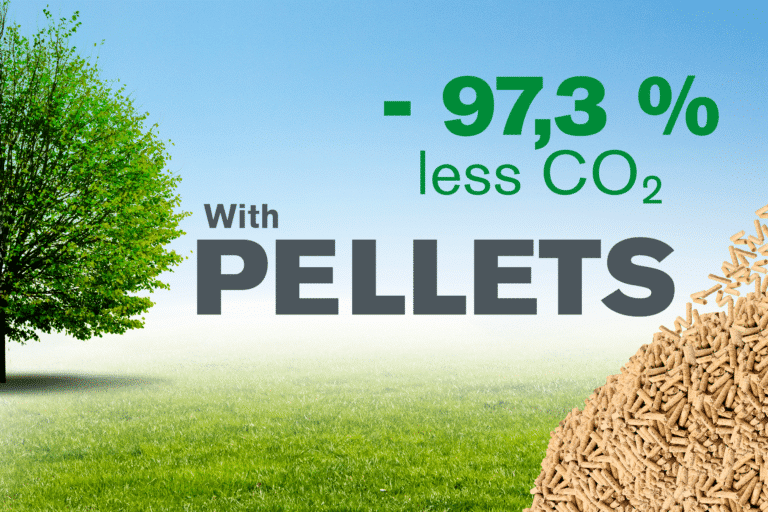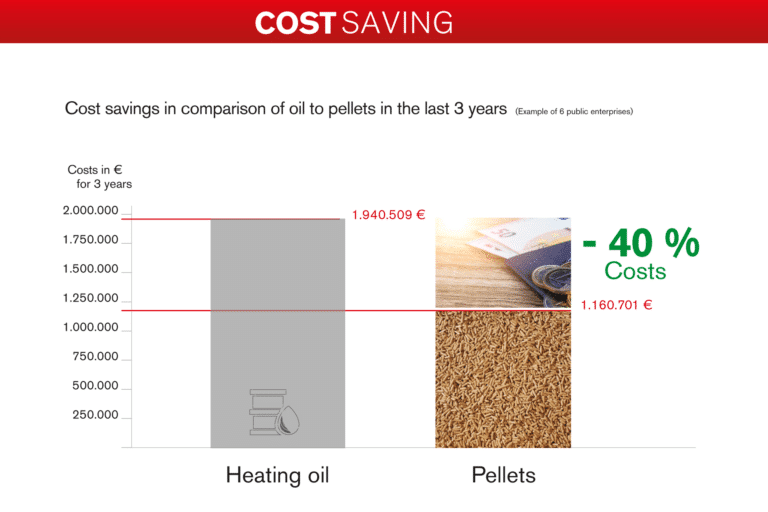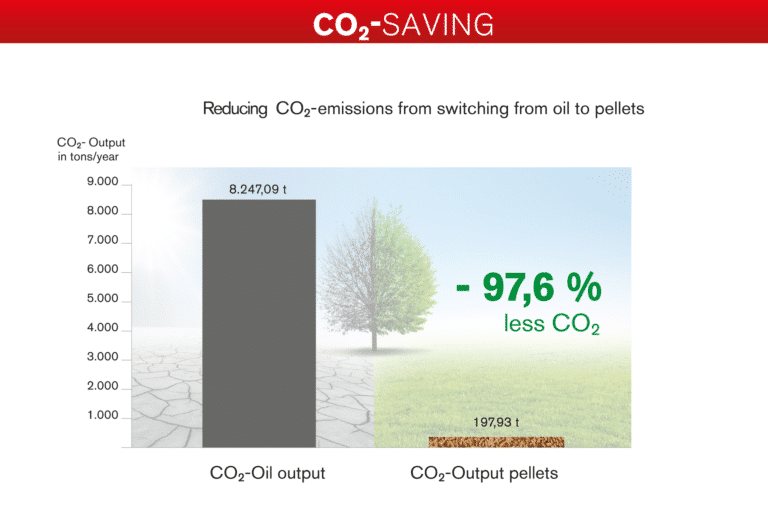An extensive study, which was carried out by the research organization Bioenergy 2020 and the ARGE Erneuerbare Energie Wien /NÖ, has come to the conclusion that a conversion from oil to pellets would result in a CO₂ reduction of 97.6 % (source: propellets).
97.6% less CO₂ means a significant protection of the environment:
- Less warming of the earth’s climate.
- Polar caps and glaciers melt less
- The water level of the oceans remains the same

Pellets vs. fuel oil: cost savings & CO₂ reduction
To make the CO₂ savings a little more comprehensible for you, we have calculated them using a concrete example. We looked at six major consumers of heating oil (e.g. public institutions). More specifically, we focused on their average heating oil consumption over the last three years. This consumption is compared to the cost of pellets over three years.

In the current case, switching from heating oil to pellets can reduce costs by around 40% – viewed over a period of three years. This means that almost £800,000 can be saved.
If you compare the CO₂ emissions of pellet heating systems with those of oil heating systems, you can see a clear difference. The CO₂ emissions of oil are around 8,000 tonnes per year. In contrast, a pellet heating system emits only 197.93 tonnes . This corresponds to 97.3% less emissions than oil heating.

The advantages of buffer storage
In addition to the high savings on heating costs and the significant contribution to protecting our environment, Germany introduced CO₂ pricing for heating and transport at the beginning of 2021.
What does this mean in concrete terms?
Companies that put heating oil on the market, for example, are obliged to purchase emission rights for the greenhouse gas emissions caused by the fuel. The price for CO₂ is initially £25 per ton and will gradually increase to £55 (in 2025).
Switching from oil to pellets: advantages at a glance
- Reduction of emissions by up to 97.3
- Cost reduction of up to 40
This makes saving energy and also using climate-friendly technologies, such as heating with biomass, even more attractive.
